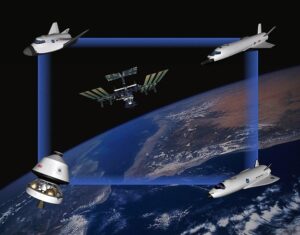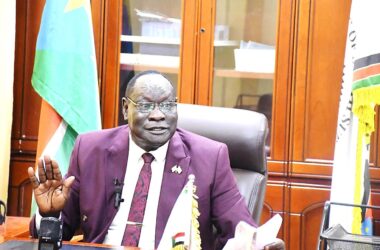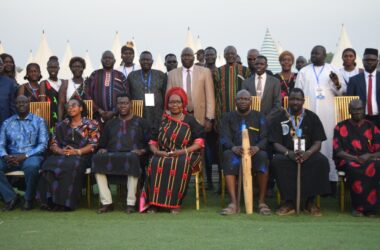
By Alan Clement
The Director of Research and Planning at the National Communication Authority has confirmed that South Sudan has succeeded in securing two orbital slots for satellites.
Eng. Chol Joseph Mayen made the remarks during the launch of the Space Science Education program at the University of Juba on Wednesday.
“As we are members of the International Telecommunication Union (ITU), the National Communication Authority succeeded in securing two orbital slots for satellites. This is for you, so that day if you have the ability to launch your own satellite, you have an orbital slot,” said Mayen.
“This journey will reach its goal for South Sudan to be among the nations that have presence in space and also have scientists who are fueling that space,” he added.
He explained that orbital slots are essential resources for satellite communication and broadcasting, which countries either rent or purchase if they do not own them.
“Now, one of the assets for South Sudan is two orbital slots in space that can be used for communication and broadcasting. That is an inheritance for the younger generation,” he said.
Mayen also revealed out NCA’s ongoing support for the Mayardit Academy for Space Science since its inception, including the establishment of a dedicated space department staffed with qualified professionals.
“We sent people to study abroad, including one who completed satellite communication training in Japan. We are still sending more and sponsoring aspiring scientists,” he stated.
The space science education initiative, spearheaded by the Mayardit Academy for Space Science in collaboration with NCA and other institutions, provides student-centered STEM programs for various age groups and school levels, aiming to complement theoretical knowledge with practical skills in science and engineering.
It also offers digital skills training for vulnerable youth and has a vision to train and mentor students for future university studies and careers in STEM fields.
The director described the launch of the education program as the beginning of a long journey for South Sudan into the critical field of space science, emphasizing the importance of nurturing young talent.
“This is a wonderful direction that South Sudan is taking; to be among the leading nations in this area and this field of science,” he said at the launch.
He further pointed out that the NCA is working in collaboration with the Ministry of General Education, the Ministry of Higher Education and Technology, and other institutions to develop regulations and training programs that will support South Sudan’s ambitions in space science.
Speaking at the same event, Israeli Ambassador to South Sudan, Gershon Kedar, underscored the importance of hands-on learning in science.
“For space science, when you are learning by experimentation from your own calculations, then you realize how science is real work,” Kedar said.
He emphasized the importance of collaboration among professors, stakeholders, and government ministries to cultivate the next generation of South Sudanese scientists through university education.
“By studying science, you will be at the cutting edge of development of your country, and this is what we are looking for through this program,” he stressed.



